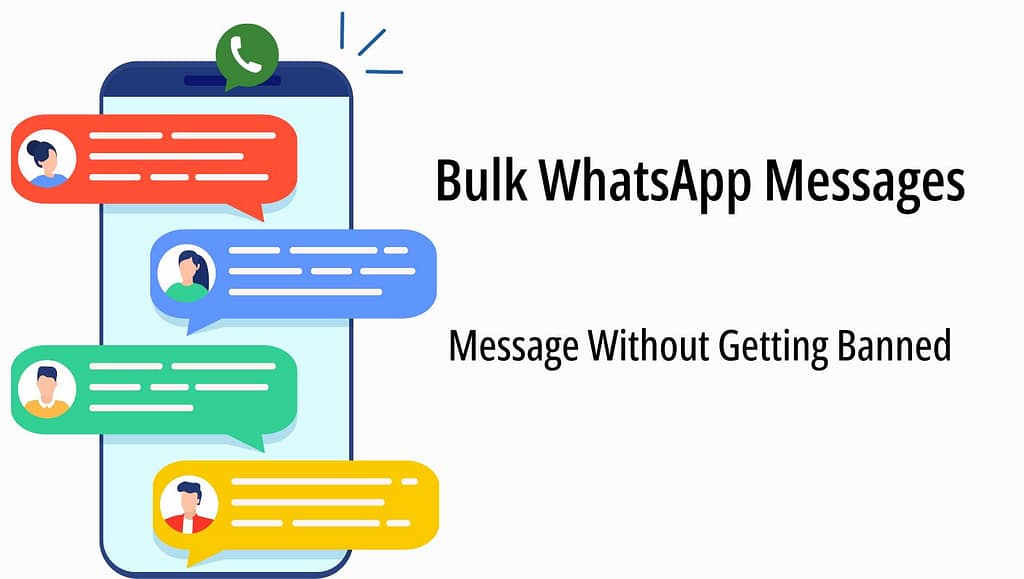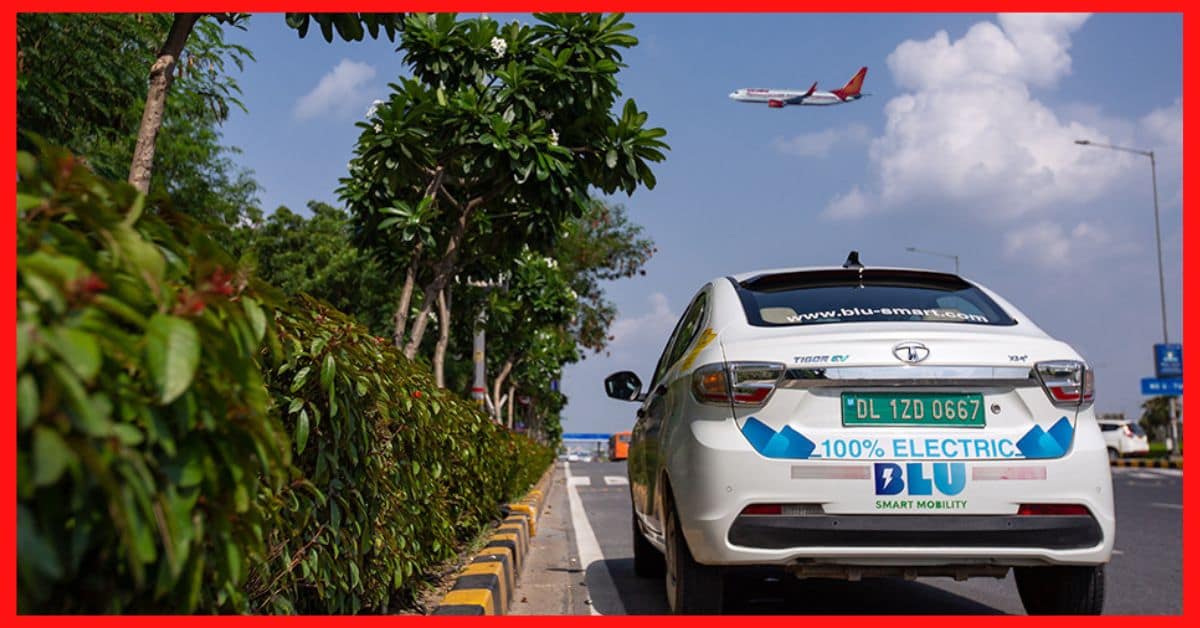Bulk WhatsApp messages represent one of the most powerful yet misunderstood marketing channels available to modern businesses. With 98% open rates compared to email’s mere 21%, and the ability to drive 40-50% higher conversion rates, WhatsApp has become indispensable for D2C brands seeking direct customer engagement.
However, the platform’s strict anti-spam policies mean that one wrong move can result in permanent account suspension, making compliance knowledge absolutely critical for sustainable growth.
Understanding WhatsApp’s Bulk Messaging Policies: The Foundation of Safe Practice
The key to successful WhatsApp bulk messages for D2C brands lies in understanding that WhatsApp distinguishes between compliant business communication and spam. The platform’s policies are designed to protect user experience while enabling legitimate business growth through official channels.
The Three-Method Reality Check

Comparison of WhatsApp bulk messaging methods showing compliance levels and ban risks for D2C brands
WhatsApp Business App Method: Limited to 256 contacts per broadcast list, suitable for small businesses but with moderate ban risk if misused.
Unofficial Third-Party Tools: Offer unlimited messaging but carry permanent ban risk and violate WhatsApp’s Terms of Service.
WhatsApp Business API: The only enterprise-grade solution offering unlimited compliant messaging with zero ban risk when used correctly.
Current Policy Framework (2025 Updates)
As of November 1, 2024, WhatsApp made all service conversations within the 24-hour customer service window completely free, fundamentally changing the economics of customer support. The transition to per-message pricing beginning April 1, 2025, with full rollout by July 1, 2025, requires businesses to understand the new cost structure while maintaining compliance.
The Only Safe Method: WhatsApp Business API for Compliant Bulk Messaging
The WhatsApp Business API tool represents the gold standard for D2C WhatsApp strategies requiring scale without risk. Unlike unofficial methods that promise easy bulk messaging but deliver account suspensions, the API provides legitimate access to WhatsApp’s enterprise features.

Examples of utility message templates for transaction confirmations, updates, and billing notifications
Tier-Based Scaling System
The API operates on a sophisticated tier system that prevents spam while enabling growth:
Tier 1: Send messages to 1,000 unique users daily – ideal for growing D2C brands.
Tier 2: Reach 10,000 unique users daily – suitable for established businesses.
Tier 3: Message up to 100,000 unique users daily – enterprise-level capacity.
Template-Based Messaging: Your Compliance Shield
All business-initiated conversations require pre-approved message templates, which serve as your protection against policy violations. Templates fall into three critical categories:
Marketing Templates: Promotional offers, product announcements, abandoned cart reminders.
Utility Templates: Order confirmations, shipping updates, appointment reminders.
Authentication Templates: OTP codes, login confirmations, security verifications
WhatsApp Marketing Strategies for D2C Brands: Unlock Growth with D2Ctoday

Illustration of SMS marketing compliance for 2025 emphasizing secure and compliant messaging practices with opt-out options and security icons
Mastering Template Approval: The Gateway to Compliant Messaging
Template approval typically takes up to 24 hours, though some templates receive approval within minutes through WhatsApp’s machine learning process. Understanding approval requirements prevents delays and rejections that can derail marketing campaigns.
Common Approval Failures to Avoid
Variable Placement Errors: Never place variables like {{1}} at message beginnings or endings.
Sequential Issues: Variables must follow proper numbering ({{1}}, {{2}}, {{3}}) without gaps.
Content Violations: Avoid gambling terms, financial requests, or overly generic messaging.
Language Mismatches: Ensure template language selection matches actual content.
Approval Timeline and Process
Submission: Submit through WhatsApp Manager or Business Solution Provider.
Review Period: 24-hour maximum for most templates, with ML-assisted instant approval for compliant submissions.
Status Updates: Real-time notifications via email and webhook integration.
Quality Monitoring: Ongoing assessment based on user feedback and engagement rates.

WhatsApp guide to preventing account bans and ensuring safe usage during bulk messaging
Implementation Roadmap: Step-by-Step Safe Bulk Messaging
Phase 1: Foundation Setup (Week 1)
Business Solution Provider Selection: Choose certified providers like Interakt, Wati, or AiSensy based on integration needs and compliance support.
Business Verification: Complete WhatsApp’s verification process including documentation submission and Facebook Business Manager integration.
Template Strategy Development: Plan message templates across marketing, utility, and authentication categories aligned with customer journey stages.
Phase 2: Template Creation and Approval (Week 2)
Content Development: Create compelling templates following WhatsApp’s formatting guidelines and variable placement rules.
Approval Submission: Submit templates through official channels with proper sample data and category classification.
Integration Testing: Configure webhook integrations and test message delivery in controlled environments.
Phase 3: Campaign Launch and Optimization (Week 3-4)
Audience Segmentation: Implement sophisticated targeting based on customer behavior, purchase history, and engagement patterns.
Personalization Implementation: Leverage the fact that 75% of consumers prefer personalized communications by incorporating dynamic content.
Performance Monitoring: Track delivery rates, engagement metrics, and quality scores to maintain compliance.

Five essential rules to safely send bulk WhatsApp messages without getting banned, including learning policies, messaging opted-in contacts, timely response, team training, and using authorized tools
D2C WhatsApp Strategies: Maximizing Results While Staying Safe
WhatsApp bulk messages for D2C brands achieve exceptional results when executed strategically. Leading D2C companies report conversion rates 40-50% higher than email or SMS, with CTR rates up to 3x higher than traditional email marketing.
Segmentation Excellence
Behavioral Targeting: Group customers based on purchase patterns, browsing behavior, and lifecycle stage.
Geographic Personalization: Leverage WhatsApp’s global reach while respecting local communication preferences.
Engagement-Based Filtering: Remove inactive contacts to improve overall campaign performance and compliance metrics.
Content Optimization Strategies
Message Frequency Management: Follow the recommended 5-6 marketing messages per month to prevent fatigue and maintain engagement.
Rich Media Integration: Incorporate images, videos, and documents within template frameworks to improve engagement.
Call-to-Action Clarity: Design clear, actionable next steps that guide customers through desired conversion paths.
Timing and Delivery Optimization
Peak Engagement Windows: Schedule messages during high-activity periods when 95% of messages are read within 3 minutes.
Time Zone Intelligence: Respect recipient locations to maximize open rates and minimize complaints.
Automated Sequence Design: Create nurturing flows that provide value while driving conversions.

Professional marketing and event announcement templates featuring a Small Business Week event with a bold megaphone graphic
Ban Prevention Strategies: Protecting Your Account Investment
Account suspension represents the ultimate failure in WhatsApp bulk messages strategy. Understanding prevention measures ensures long-term viability of your marketing channels.
The Five Pillars of Account Safety
Policy Adherence: Master WhatsApp’s Commerce Policy, Business Policy, and Terms of Service requirements.
Opt-in Compliance: Ensure explicit consent from all recipients before adding to messaging lists.
Response Management: Maintain active customer service to address complaints before they escalate to reports.
Quality Metrics: Monitor template performance and user feedback to maintain high quality ratings
Tool Selection: Use only official WhatsApp Business API and certified Business Solution Providers.
Red Flag Behaviors to Eliminate
Mass Messaging to Unknown Contacts: Never purchase contact lists or message non-opted users.
Rapid Group Joining: Avoid bot-like behavior that triggers automated detection systems.
Unofficial App Usage: Eliminate GB WhatsApp, WhatsApp Plus, or other modified applications entirely.
Aggressive Frequency: Respect user preferences and avoid overwhelming recipients with excessive messages.

Long Code Messaging Campaign Checklist for compliance and best practices in messaging campaigns to avoid legal issues and bans
Advanced Compliance Monitoring: Staying Ahead of Policy Changes
WhatsApp business API tool success requires ongoing compliance monitoring and adaptation to policy updates. The platform continuously evolves its anti-spam measures and quality requirements.
Quality Score Management
Template Performance: Monitor approval rates, rejection reasons, and user feedback scores.
Engagement Metrics: Track open rates, response rates, and conversion performance across campaigns.
Complaint Resolution: Develop rapid response systems for user concerns and opt-out requests
Regular Audits: Conduct monthly compliance reviews to identify potential risk factors.
Industry-Specific Considerations
D2C E-commerce: Focus on transactional messaging excellence while building permission for promotional content.
Financial Services: Implement enhanced security templates and authentication workflows.
Healthcare: Maintain HIPAA compliance alongside WhatsApp policy requirements.
Education: Balance promotional messaging with valuable informational content.
Integration Excellence: Connecting WhatsApp with Your D2C Stack
Modern D2C WhatsApp strategies require seamless integration with existing business systems to maximize efficiency and maintain data consistency.
E-commerce Platform Integration
Shopify Connectivity: Automate order confirmations, shipping notifications, and abandoned cart recovery sequences.
WooCommerce Synchronization: Enable real-time inventory updates and personalized product recommendations.
Custom API Development: Build bespoke integrations for unique business requirements and workflows.
CRM and Marketing Automation
Customer Data Synchronization: Ensure WhatsApp interactions inform broader customer profiles and journey mapping.
Lead Scoring Integration: Use WhatsApp engagement data to enhance lead qualification processes.
Campaign Orchestration: Coordinate WhatsApp messaging with email, SMS, and social media campaigns.
The evidence overwhelmingly supports WhatsApp bulk messages as the premier engagement channel for D2C brands, delivering 98% open rates and conversion rates 40-50% higher than traditional channels.
However, success requires absolute commitment to compliance, official methods, and customer-centric messaging strategies.
Let’s Build Something Great Together
Have an idea, a question, or just want to explore how we can help your brand grow?
FAQs
1. Is it safe to send bulk WhatsApp messages using third-party tools in 2025?
Absolutely not. Using third-party tools for WhatsApp bulk messages carries permanent ban risk and violates WhatsApp’s Terms of Service. These tools may promise unlimited messaging capabilities, but they operate outside WhatsApp’s official framework and trigger automated detection systems.
The only safe method is the WhatsApp Business API through certified Business Solution Providers, which provides compliant bulk messaging with enterprise-grade features and zero ban risk when used correctly.
2. What’s the difference between WhatsApp Business App and WhatsApp Business API for bulk messaging?
The WhatsApp Business App limits you to 256 contacts per broadcast list and carries moderate ban risk with heavy usage, making it suitable only for small-scale operations. The WhatsApp Business API tool, however, supports enterprise-level messaging with tiered limits from 1,000 to 100,000+ unique users daily, requires pre-approved templates for compliance, and integrates with business systems for automation.
For WhatsApp bulk messages for D2C brands, the API is essential once you exceed basic broadcast needs or require sophisticated automation.
3. How long does WhatsApp template approval take, and what causes rejections?
Template approval typically takes up to 24 hours, though many templates receive approval within minutes through WhatsApp’s machine learning process. Common rejection reasons include improper variable placement (never at message start/end), non-sequential numbering, overly generic content, and language mismatches.
To ensure approval, follow proper formatting with variables like {{1}} placed mid-message, avoid gambling/financial terms, and submit templates with clear, specific content that provides genuine value to recipients.
4. What are the current costs for WhatsApp Business API bulk messaging in 2025?
Service conversations within the 24-hour customer service window have been completely free since November 1, 2024. Per-message pricing began April 1, 2025, with full rollout by July 1, 2025. Marketing templates typically cost $0.005-$0.15 per message depending on recipient country, while utility messages (order updates, confirmations) cost $0.001-$0.05 per message.
Most D2C WhatsApp strategies see monthly costs ranging from $200-$2,000 depending on message volume and campaign sophistication, with strong ROI through 40-50% higher conversion rates compared to email marketing.
5. How can D2C brands maintain compliance while scaling WhatsApp bulk messaging campaigns?
Success requires adherence to the five pillars of account safety: policy compliance, explicit opt-in consent, responsive customer service, quality metrics monitoring, and official tool usage.
Implement audience segmentation to send targeted, relevant messages rather than generic blasts, maintain the recommended 5-6 marketing messages per month frequency, and leverage the 75% of consumers who prefer personalized communications.
Use certified Business Solution Providers, monitor template quality scores, and establish rapid complaint resolution processes to maintain high standing with WhatsApp’s compliance systems while achieving the 98% open rates that make the platform so effective.









